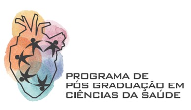Banca de DEFESA: CAMILA CASTILHO MORAES
Uma banca de DEFESA de MESTRADO foi cadastrada pelo programa.STUDENT : CAMILA CASTILHO MORAES
DATE: 23/09/2022
TIME: 16:00
LOCAL: Miniauditório ICS, segundo pavimento do BMT 1
TITLE:
EVALUATION OF IN VIVO ANTIMALARIAL ACTIVITY OF ACETONIC EXTRACT FROM ANDIROBA INDUSTRIAL RESIDUE (Carapa guianensis aubl., Meliaceae)KEY WORDS:
Malaria, Carapa guianensis, Plasmodium, antimalarial activity
PAGES: 37
BIG AREA: Ciências da Saúde
AREA: Saúde Coletiva
SUMMARY:
Malaria is an infectious disease, neglected, endemic in more than 85 countries, responsible for more than 241 million cases, considered one of the biggest economic and social problems in the world. In Brazil, in 2020, 143,395 cases of the disease were reported. Plasmodium falciparum and Plasmodium vivax are primarily responsible for most cases of the disease. Malaria eradication is of global interest, however, the lack of a vaccine, the emergence of resistant parasites and their high endemicity make this control difficult, and justify the search for new bioactive molecules for the production of new drugs with antimalarial potential. Thus, this research evaluated the in vivo antimalarial activity of the acetone extract of Carapa guianensis, as well as its acute toxicity, survival analysis and analysis of hematological parameters. The industrial residue of Carapa guianensis was supplied by the vegetable oil extractor company AmazonOil located in the city of Ananindeua-PA. The analysis of the chemical composition of Carapa guianensis was performed using ultra-performance liquid chromatography coupled to sequential mass spectrometry (MS-MS). Assessment of in vivo toxicity in BALB/c mice was performed according to the OECD Guide. To evaluate the antimalarial activity in vivo, BALB/c mice were used, infected with approximately 106 erythrocytes parasitized by P. berghei receiving treatment on the 4th day after inoculation, treated for 7 consecutive days and submitted to blood collection to determine the hematological parameters. The chemical characterization identified limonoids as the major compounds being methyl angolensate (21.17%) and 6α-acetoxygedunin (12.38%). The acute toxic dose of acetone extract of Carapa guianensis was higher than 2000 mg/kg in BALB/c mice, being classified in category 5 of the Globally Harmonized Classification System (GHS). The doses of acetone extract (100 and 200 mg/kg/day) significantly reduced P. Bergheiinduced parasitaemia, as well as obtaining an important result in the evaluation of mouse survival. In view of the above, the acetone extract of Carapa guianensis, a natural product from the Amazon, presented a safe antimalarial potential and a promising candidate for further complementary research. Necessary for the development of new drugs.
BANKING MEMBERS:
Interno - 1243405 - THALIS FERREIRA DOS SANTOS
Externo ao Programa - 1843993 - ANTONIO HUMBERTO HAMAD MINERVINO
Externo ao Programa - 1327576 - LINCOLN LIMA CORREA




